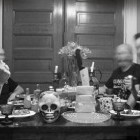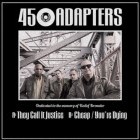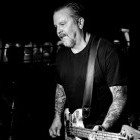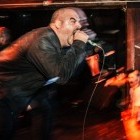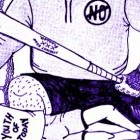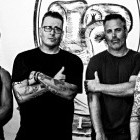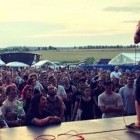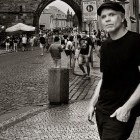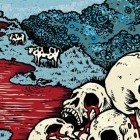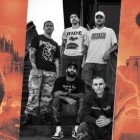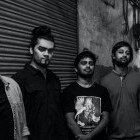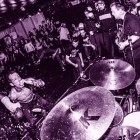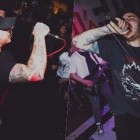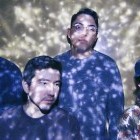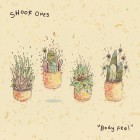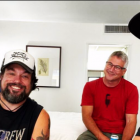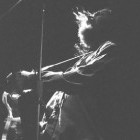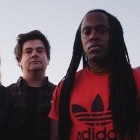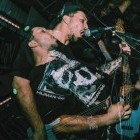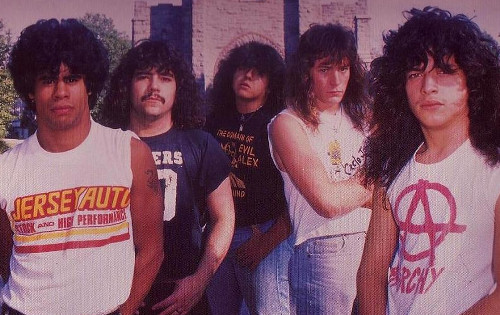
They may have never become one of the bigger thrash groups of the late '80s, but for folks in New Jersey, Gothic Slam were local heroes. Their two albums, Killer Instinct (1988) and Just a Face in the Crowd (1989), found the quintet dishing out Euro-flavored guitar riffs that tipped their hat to the New Wave of British Heavy Metal, albeit with a thrusting, modern thrash backbeat behind them.
What truly hooked me about Gothic Slam was their vocalist, Daniel Gomez. The singer's approach blended the kind of grit one would expect from a metal frontman with a soulful croon that brought to mind classic R&B. I know, it sounds like it could be a bad combination on paper, but Gomez made it work. It sounded fresh and set Gothic Slam apart from the rest of the acts on the local thrash scene.
Gothic Slam broke up in the early '90s, but I've kept playing their records in the years since. When we launched NoEcho.net a few weeks ago, Gomez was one of the first people I reached out to about an interview for the site. It was great catching up with him about Gothic Slam's history, and his current projects.
Let's start with the beginning and Stryker.
Wow! My memory is not what it used to be [laughs]. Around '83 or '84, the band was called Stryker. They had two singers before me, Richie and Alex, and they played a lot of local gigs. I never liked the name. It reminded me too much of Stryper [laughs]. A lot of people got the two names confused with each other.
I've always wondered how you came up with Gothic Slam as a name.
We had to change the name because another band had Stryker already, if my memory serves me right. Thank God! The name Gothic Slam was tossed around by Todd Gordon and Ken Adams, our label guys at Torrid Records. It sounded weird, but after a while, it just seemed right. It's one of those band names with no real meaning to it. It's also the kind of name that rolls well off the tongue.
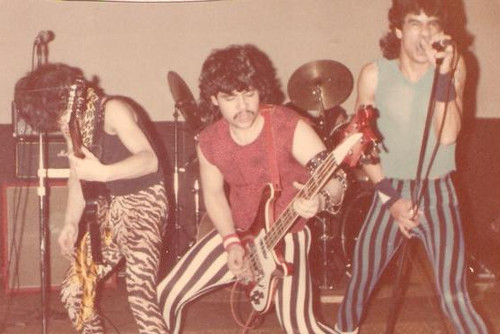
Once you became Gothic Slam, which clubs did you pack during the time before you released an album?
Well, we did play a lot locally and kicked a lot of ass in that period. We were a live band and we gave all we had every show. We killed 'em in Jersey City at a club called Escapades. We also played Maxwell's in Hoboken a lot. But the club where we really killed was Streets in New Rochelle, New York. The people there loved stage diving and moshing. Our music was a great fit for that.
You ended up signing with Torrid Records. Were there any other labels showing interest at the time? I know Roadrunner Records handled the band in Europe. Why did you go with Torrid?
Our drummer (Dave Chavarri) handled the business end of things. He approached us and said these guys were interested in us and that they wanted the band to make a record for their label. We were like, "Great, let's do it!" There weren't any bidding wars going on for Gothic Slam, so we took what someone had to offer at the time [laughs].
How did your first album, Killer Instinct, end up doing? Did you tour a lot in support of it?
It did alright, but it didn't have much distribution. Torrid Records was new in the game, so it was all a learning curve for everyone involved. It's all I can say about that. And no, we did not tour till after our second album came out.
The way I first heard Gothic Slam was through WSOU, Seton Hall's radio station. Even though I lived in New York City, we still got the signal where I lived. They played the song "Skankin'" all the time. I always thought that was an interesting blend of thrash with an almost poppy element to it in the way the vocal melodies are laid out.
"Skankin'" was a term at the time for a type of mosh-like movement people did in the pit. I loved it. The beginning of the song is my favorite 'cause it sounds like it's gonna be a disco thing and then I go, "Fuck this!" After that, all hell breaks loose. You had to see my mom's face when I played it for her for the first time. It was classic! It's a fast, thrashy and go-for-the-throat kind of song. Vocally, I just went with what felt right at the time.
Around that time, I remember seeing Gothic Slam perform at a free show at Tompkins Square Park on the Lower East Side of Manhattan. It was you, Mucky Pup and Prong.
I remember that show! It was raining, I was trippin' and the homeless there loved us. That's all I'm gonna say about that [laughs]. It was the best of times.
After Killer Instinct had been out for a while, the band signed a deal with Epic Records. How did that deal materialize?
Torrid got a distribution deal for our second record from Epic/CBS. How they did that I have no clue. We had an A&R guy named Mike Schnapp. He's a great guy and a legend in the music business. He did the best he could for us, but he still worked for the company, and they didn't get it.
Can you give us some insight on the making of the Just a Face in the Crowd album? You recorded the record at Pyramid Sound in Ithaca, NY with Rob "Wacko" Hunter producing. You once told me he wasn't your first choice. Who was?
Alex Perialas was our first choice. Rob, who I never knew, was the crazy hockey helmet-wearing drummer for Raven (seen below), and hadn't produced anything up to that point that I heard. So, yeah, I wanted Alex to just do it, because he had produced the best of them, but he wanted to let Rob get his feet wet more. The record actually turned out great and Alex was there most of the time as well.
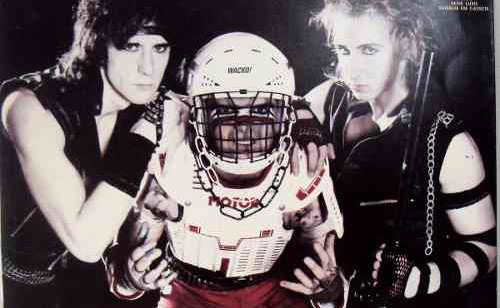
Did the label pressure you for another song like "Skankin'?" I think the track "Who Died and Made You God" had the same kind of spirit to it.
No, they left us alone for the most part. They did throw us some suggestions, but we did what we wanted and felt no real pressure. "Who Died and Made You God" did end up becoming our staple song.
I don't recall you guys getting on any big tours after the album, even though you had Epic behind you.
Oh, we were a small fish in a big pond when our record came out. But, so were a lot of other bands on the label that ended up becoming classic bands. I'm talking about acts like Pearl Jam, Living Colour, Prong and Suicidal Tendencies. They threw everything against the wall and whoever stuck got their attention. The rest of the artists were looked at like a tax write off. I think we needed to be developed more, but there was no time for that on a major label. We were still more underground. Plus, Torrid Records wanted Epic to pay for everything and Epic wanted Torrid to pay. Blah, blah, blah. We played with the best bands from that era and that is fine with me.
You've said that money was the main reason Gothic Slam broke up. What really ended up happening?
Like I said, bad business decisions. We also didn't have any management looking out for us, fighting for what we did. It was all very Spinal Tap [laughs].
I know of a label that tried to reissue your albums a few years ago, but Dave Chavarri put a stop to it. What are your thoughts on the reissue thing?
I say make if fucking happen! Give the people what they want and give the rest of the guys what they deserve.
Do you still talk to the other Gothic Slam guys?
J.T. (bass) and Billy (Genese, guitar) are my close bros to this day. We stay informed with each others' lives on Facebook.
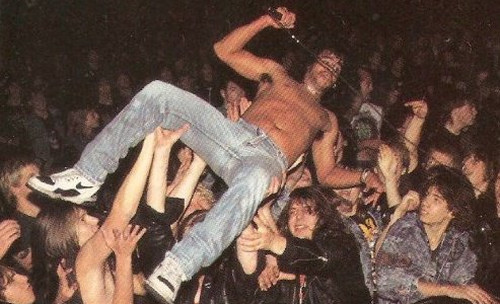
What are you up to these days, musically speaking?
I've never stopped playing music at any point in my life. I'm recording a solo, 4-song EP at Katalomi Studios in Jersey City. I'm also working with some great musicians for a new band that I can't talk about yet.
I want to thank you, Carlos, for doing this and letting those who may remember Gothic Slam and our music. I also want to thank everyone from the new breed of thrash metallers for all of the e-mails, asking me all kinds of questions about the band. I will say this again, we never planned any of it. There is no secret. We just lived it. You should do the same.
If anyone cares about what I'm doing musically now, I invite you to my Facebook page.

